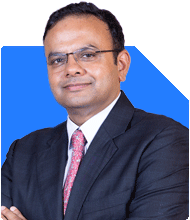Need to invest 5 lakhs one time in 5 stocks for long term (5 yrs) please suggest
Ans: I appreciate your proactive approach to investing. Investing Rs 5 lakhs for the long term can yield substantial returns if done wisely. Instead of directly investing in stocks, I recommend considering equity mutual funds. These funds offer diversification, professional management, and have historically provided good returns.
Understanding Your Financial Goals
Assessing Your Investment Horizon
Long-Term Perspective: A 5-year investment horizon is suitable for equity investments, allowing time to ride out market volatility.
Risk Appetite: Consider your risk tolerance. Equity mutual funds are subject to market risks, but they offer potential for higher returns.
Defining Your Financial Objectives
Capital Growth: The primary objective is to grow your capital. Equity mutual funds can help achieve this through diversified portfolios.
Tax Efficiency: Equity mutual funds have tax advantages, with long-term capital gains tax being relatively low compared to other investments.
Benefits of Equity Mutual Funds
Diversification
Spreading Risk: Mutual funds invest in a diversified portfolio of stocks, reducing the impact of any single stock's poor performance.
Sector Exposure: They offer exposure to various sectors, providing a balanced investment approach.
Professional Management
Expert Fund Managers: Mutual funds are managed by experienced professionals who make informed decisions based on market research and analysis.
Continuous Monitoring: Fund managers actively monitor the market and adjust the portfolio to optimize returns.
Selecting the Right Equity Mutual Funds
Criteria for Selection
Past Performance: Look for funds with a consistent track record of outperforming benchmarks over 5 to 10 years.
Expense Ratio: Choose funds with lower expense ratios to maximize net returns.
Fund Manager Experience: Consider the experience and track record of the fund manager.
Types of Equity Mutual Funds
Large-Cap Funds: These invest in well-established companies with a history of stable performance. They are less volatile compared to mid and small-cap funds.
Mid-Cap and Small-Cap Funds: These invest in smaller companies with higher growth potential but also higher risk.
Sectoral/Thematic Funds: These focus on specific sectors or themes, offering high returns but also higher risk. They require thorough market understanding.
Detailed Analysis of Equity Mutual Funds
Performance Metrics
Annualized Returns: Check the annualized returns over different periods (1 year, 3 years, 5 years).
Standard Deviation and Beta: Assess the risk associated with the fund. Lower standard deviation and beta indicate lower volatility.
Consistency and Stability
Rolling Returns: Evaluate the rolling returns to understand the fund's performance consistency over time.
Downside Protection: Analyze how the fund performs during market downturns. Funds with better downside protection are preferable.
Evaluation and Recommendation
Balanced Approach: Prefer funds that offer a balance of high returns and lower risk. A mix of large-cap and mid-cap funds is advisable.
Long-Term Focus: Choose funds with a proven track record of long-term performance and stability.
Investing in Equity Mutual Funds
Systematic Investment Plan (SIP) vs Lump Sum
SIP: Invest a fixed amount regularly, averaging out the purchase cost and reducing market timing risk.
Lump Sum: Suitable if you have a large amount to invest and prefer immediate exposure to the market.
Asset Allocation Strategy
Diversified Portfolio: Allocate your Rs 5 lakhs across different types of equity mutual funds (large-cap, mid-cap, small-cap) for a balanced portfolio.
Regular Review: Periodically review your portfolio to ensure it aligns with your financial goals and market conditions.
Managing Your Mutual Fund Investments
Regular Monitoring
Performance Review: Monitor the performance of your funds at least quarterly. Compare with benchmarks and peers.
Rebalancing: Rebalance your portfolio if the asset allocation drifts significantly from your target allocation.
Staying Informed
Market Trends: Stay updated with market trends and economic indicators that may impact your investments.
Fund Updates: Read fund updates and reports provided by the fund house to understand any changes in strategy or performance.
Tax Considerations
Long-Term Capital Gains Tax (LTCG)
Tax Rate: LTCG on equity mutual funds is taxed at 10% if the gain exceeds Rs 1 lakh in a financial year.
Tax Efficiency: Equity mutual funds are tax-efficient compared to other investment options, especially for long-term investments.
Final Insights
Investing Rs 5 lakhs in equity mutual funds for a 5-year horizon can be a wise decision. Equity mutual funds offer diversification, professional management, and potential for high returns. Choose funds based on performance, expense ratio, and fund manager experience. A mix of large-cap and mid-cap funds can provide a balanced portfolio.
Avoid investing directly in stocks if you lack the time and expertise to monitor them. Equity mutual funds can mitigate risk through diversification and professional management. Stay informed and regularly review your investments to ensure they align with your financial goals.
Remember, investing in mutual funds carries market risks. Ensure you are comfortable with the level of risk before investing. With disciplined investing and regular monitoring, you can achieve your financial goals and build wealth over the long term.
Best Regards,
K. Ramalingam, MBA, CFP,
Chief Financial Planner,
www.holisticinvestment.in





























